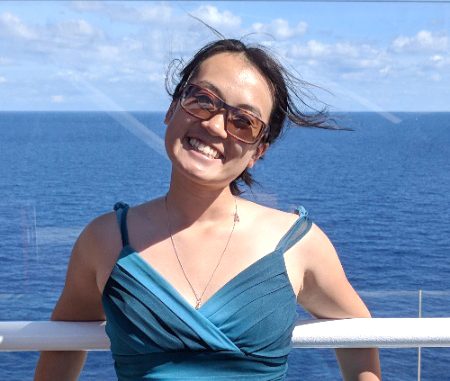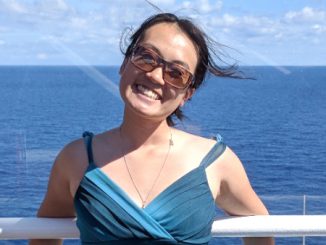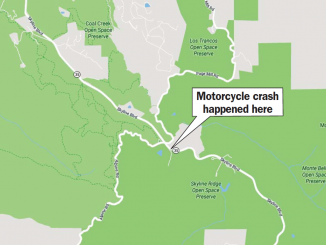
BY ALLISON LEVITSKY
Daily Post Staff Writer
Why Chuchu Ma spoke about “going into the water” on a disoriented 911 call the day before her naked body was found in a drainage ditch of the San Francisco Bay remains a mystery to medical examiners, but one Palo Alto endocrinologist has offered a compelling hypothesis.
Dr. Elizabeth Fraze suggested that, considering the 23-year-old Google engineer’s history of pancreatitis and the fact that she was monitoring her blood sugar with a medical device, she may have experienced the cognitive impairment and behavioral changes that can accompany the low blood sugar state suffered by diabetics.

“Diabetics drive their cars into trees and wipe out buses of nuns all the time,” Fraze said. “My diabetic patients carry a card that says, ‘If I’m acting oddly, I’m diabetic. Please look into my blood sugar.’”
According to autopsy documents and emails between investigators obtained by the Post, Ma was seen entering the water while talking on her cellphone on Dec. 6. She sounded confused on a 911 call and was found in the water by a passing cyclist the next morning along the San Francisco Bay Trail, north of the Golf Club at Moffett Field.
Her visiting boyfriend, Isaac Smith, 24, reported her missing at 2:25 p.m. on Dec. 7, about four hours after her body was found. He told Mountain View police that he hadn’t seen her since 10:30 a.m. the day before.
Police have ruled out foul play and her autopsy showed no indication of sexual assault.
The excess water in her brain and lungs, as well as some mild scrapes on her forehead and body, were consistent with drowning, according to Santa Clara County Medical Examiner Joseph O’Hara.
O’Hara left Ma’s manner of death undetermined, declaring on March 28 that she had died by drowning, but that her reason for entering the water is unknown.
“Her reported confused state is highly suggestive of psychotic behavior and may explain her entry into the water,” O’Hara wrote. “Because her intent cannot be unequivocally determined, the manner of death is ruled as undetermined.”
O’Hara did not return a request for comment.
Fraze suggested that Ma could have been hypoglycemic rather than psychotic or suicidal, but said that her hypothesis didn’t contradict O’Hara’s conclusion that she had likely entered the water in a confused state and drowned.
“Hypoglycemia starves the brain,” Fraze said. “There are medical reasons that could explain her confusing actions.”
Fraze has practiced endocrinology for 37 years and is an adjunct professor at Stanford, but emphasized that her background is not in forensics and her knowledge of Ma’s death is limited to what she read in the Post and Ma’s autopsy report.
That report shows that Ma had slightly high blood sugar when she was autopsied, which Fraze said could indicate the Somogyi effect, a spike in blood sugar in response to hypoglycemia.
Coroner investigators were still puzzled over Ma’s death as recently as last week.
“I do not see how this is an accident…why would she completely undress and jump in the water?” O’Hara asked in an email to Santa Clara County Coroner Investigator Andrea Whelan on March 26. “Unless they mean that she was psychotic and drowned accidentally while hallucinating.”
Police have not yet released their findings on the case, but appear to have settled on the psychosis theory.
“The police think that the decedent may have been psychotic and drowned accidentally, however her comments on the 911 tape about ‘going into the water’ cannot be ignored,” Whelan wrote back to O’Hara on March 28. “The police are just not thinking this is a clear ‘suicide.’”
Other evidence shows that Ma was making plans for the future the day before she was found dead, according to an email to investigators from her mother, Li Chen.
She booked a January plane ticket from San Francisco to Munich, Germany on Dec. 6, Chen wrote in a Jan. 9 email to Whelan and Sunnyvale police Detective Matt Hutchison.
Ma was also planning to travel in January to Austin, Texas, where she graduated from the University of Texas with a computer science degree in 2016. Smith is a third-year math Ph.D. student there.
Investigators didn’t find records of suicidal threats or ideations from Ma, but were still searching her medical records the day that O’Hara signed her autopsy report. Caffeine was the only drug found in her system.
When Whelan asked Chen whether Ma had ever suffered sleepwalking or narcolepsy, she said no.
Chen suggested Ma could have fallen off her bicycle and dropped a medical device she wore for a glucose study into the water and drowned while trying to retrieve it.



The doctor’s diagnosis seems to match what I saw in the behavior of a friend with Type 1 diabetes. One night at work, he went into a trance at his desk. Nobody noticed it at first. He was mumbling and slowly going through the motions of his job, but stared straight ahead. Then a co-worker walked by, noticed what was happening and got him some hard candy, which seemed to do the trick. From then on, we all kept an eye on him to make sure it didn’t happen again. We were told it was a blood-sugar issue.
I find the hypoglycemia theory plausible, but what happened to her clothes? Weren’t they found nearby? Did police even look? Did anybody report anything?
I wish to apologize to whomever I may have offended, persons with diabetes, without diabetes, or nuns. What popped out of my mouth was a family idiom, reflecting serious consequences, not to be taken literally! The information relayed to the post was intended to go to the medical examiner for his consideration. Allison, you did a very good job of explaining the physiology involved, thank you for that. It is my hope that this alternative explanation, in contrast to psychosis, may give some consolation to the family and loved ones of Miss. Ma regarding this tragic event. Sincerely, Elizabeth Fraze
Doctor, I don’t think anybody took offense at what you said. If they did, they’re overly sensitive and need to get some perspective. You performed a valuable service by offering this hypothesis. It helps people who aren’t diabetics understand Hypoglycemia and know the symptoms.
Thank you Caleb, that makes me feel so much better. Cheers Elizabeth
I’ve seen the same symptoms in a type 1 diabetic I’m related to. Learning more about this disease is helpful to everyone. I appreciate the doctor’s comments. Sad story. I hope Chuchu’s family gains some closure from this.
I had hypoglycemia several years ago…and totally related to Dr Fraze’s observations and statements in the article. One of those situations where you go: “How come nobody else tied things together?”
Low blood sugar in hypoglycemics produces dizziness, hallucinations, etc…even leading to a coma.
Kudos to you, Dr Fraze, and kudos to the reporter, Ms Levitsky, too!
Dr. Fraze is an excellent endocrinologist and a superb medical detective. She put together clues and discovered I had an certain disease, though I lacked most of the traditional symptoms. I probably had it 20+ years and no one thought to test me. She was recommended to me for her uncanny “detective” skills. I would give considerable weight to her theory about this tragic event.
Investigator: I carefully checked the area where she was found that day and subsequent days thereafter, found no clothing whatsoever under or near any of the bushes or location where entry into the water was possible. Also to note there were only a few locations where the grass next to the riverbank was trampled by footsteps. There is still no last known cell phone ping from her phone as published by the Sunnyvale Police Department. T.